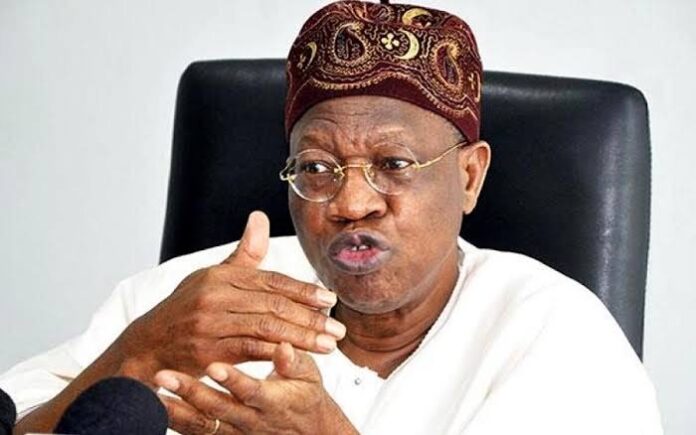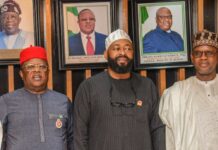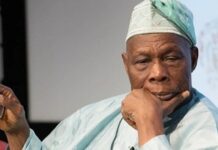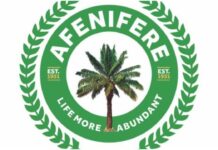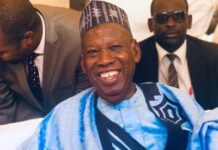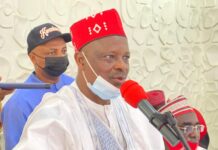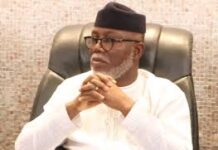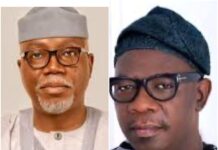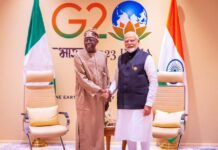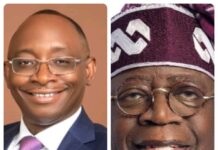Nigeria’s Poor Corruption Rating Not True Reflection Of Anti-graft War — Lai Mohammed
Politics Digest – Minister of Information and Culture, Lai Mohammed, said yesterday that Nigeria’s poor rating on the 2020 Corruption Perception Index, CPI), by Transparency International , TI, was not a true reflection of the country’s anti-graft war, noting that the agency failed to identify areas the federal government performed well.
His observation came on a day a coalition of anti-corruption groups in Europe and Nigeria asked President Muhammadu Buhari to release the report of the panel set up to investigate Ibrahim Magu, suspended acting chairman of the Economic and Financial Crimes Commission, EFCC.
Transparency International had in a report released last Thursday, scored Nigeria 25 out of 100 points, signifying the worst rating for the country since 2015.
Mohammed in a statement issued yesterday, said the federal government’s war against corruption was still on course, adding that the progress made against graft in the past two years was not included in the assessment of the country.
The minister, who noted that in addition to placing more emphasis on corruption prevention measures and building of integrity systems, high profile corruption cases were currently under investigation and prosecution, said: “For instance, following the release of the 2019 TI-Corruption Perception Index, the government initiated reforms to improve on Nigeria’s Ease of Doing Business indices.
“This is because we found that up to 40 percent of the country’s corruption perception survey indices relates to business processes and general public service delivery processes.
“Government’s swift action has led to major reforms in the processes at our ports and business process points. In response to these evaluations, a number of significant policies have been instituted to enhance transparency and accountability, and prevent corruption.
“Even in the middle of the COVID-19 pandemic, a number of key transparency and accountability policies were developed and are currently being implemented.”
He said there was a National Ethics Policy introduced by the Independent Corrupt Practices and Other Related Offences Commission, ICPC, which addresses integrity issues in all sectors.
”While we expect the results from these reforms to speak for us in due course, we are also taking measures to improve our data collection and retrieval on these issues to reduce the current under-reporting of our ongoing corruption reduction measures.
”After analysing Nigeria’s TI corruption rating, it was observed that some data sources in Nigeria’s scores have remained flat over the past 10 years, reflecting no improvement, decline or fluctuation.
“In this case, the corruption scores would have been affected by changes in the size and structure of the public sector over the past 10 years, changes in policies and personnel and systems over the period, including, for instance, process automation, etc.
Read Also:
“There is, therefore, a need to verify that there is no transposition of figures from year to year due to absence of current data. There is a need to understand why these variations occur, and consequently, the robustness of the methodology and validity of data.
“There is a need to understand why scores for this assessment have not been recorded for Nigeria for the past two years, which has had the effect of reducing Nigeria’s cumulative score and ranking relative to countries with those scores included in their CPI for both years,” he said.
Meanwhile, a coalition of anti-corruption groups in Europe and Nigeria has asked President Muhammadu Buhari to release the report of the panel set up to investigate Ibrahim Magu, suspended acting chairman of the Economic and Financial Crimes Commission, EFCC.
In July 2020, Magu was arrested and probed over allegations of gross misconduct and abuse of power. He was later suspended by the president and has since been replaced by Umar Mohammed, director of operations at the agency.
The panel headed by Ayo Salami, a retired judge, had probed the allegations against Magu and recommended his sack.
In its report submitted on November 20, the panel asked the President to appoint a new EFCC chairman in an interim position for two years.
But in a letter addressed to Buhari, the anti-corruption coalition expressed concern over political interference in the operations of the EFCC.
It said the inability of the federal government to release the panel report on Magu months after the panel ended its sitting was partly responsible for the recent drop in Nigeria’s anti-corruption rating by Transparency International.
The groups, including HEDA Resource Centre, Global Witness, Re:Common, and The Corner House, said the failure of the federal government to release the report suggests that the probe was a witch-hunt.
The petition signed by Olanrewaju Suraju, Simon Taylor, Luca Manes and Nicholas Hildyard, said the secrecy around the panel’s report was aimed at halting Magu’ work.
The coalition said no charge had been brought against Magu, whose tenure, they described as “an exemplary period that restored confidence in Nigeria’s commitment to fighting graft”.
It called on Buhari to make sure justice was served by ensuring that Magu was charged to court if guilty or reinstated if found innocent.
The coalition said: “As the legal maxim goes, ‘Justice delayed, is justice denied’. If Magu has a case to answer, then let him be charged before a court and given the opportunity to defend himself in public. If there is no case to answer, then justice demands that he be reinstated.
“Indeed, every day that passes without a decision being made on his fate chips another block off of Nigeria’s reputation for upholding the rule of law.
”This not only raises questions about Nigeria’s anti-corruption fight, but has strongly suggested to the international community that Nigeria’s fight is not, in the end, serious – that instead, progress can only be made against small targets, and that once the ‘important’ begins to be held to account, the lackies of the corrupt will be permitted to sabotage due process, absent even the semblance of any subtlety.
“For the sake of Nigeria and the reputation of your Presidency, we again unequivocally urge you to weigh in and see that justice is not only done but, seen to be done in this matter.”

